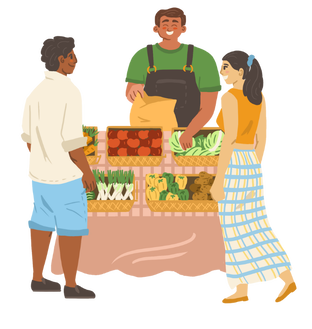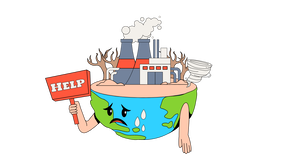Racial Justice
In conversation with Jen Sungshine

Jen Sungshine (she/her) is an artist and a facilitator by trade. She is the co-artistic director and co-founder of Love Intersections, a media arts collective that produces documentary, art-based films and artwork that centers the stories of QTBIPOC and other marginalized and underrepresented communities. She is a co-producer at the CURRENT: Feminist Electronic Arts Symposium, as well as a member of the Vancouver Artists Labour Union Cooperative (VALU CO-OP), an artist-run cooperative that helps transform labour practices in the arts and cultural sector.

Q: What values and intentions drive your work?
A: Definitely centering lived experiences, stories, and intersectionality. Also decolonizing and understanding the implications of our work as a part of the colonial project. Understanding our ethical responsibilities as artists and activists. [Love Intersections] is informed by the Indigenous worldview of the five R's: relationship, respect, relevance, responsibility, and reciprocity, of which relationality is a huge part of it. The reason why we prioritize relationships is because every single film that we've made is built on the relationships that we have cultivated through the participants. How we act out the values very tangibly is that the participants themselves also have the credit as co-director and brought along the entire journey of filmmaking — from pre-production, to the filming itself, to post-production
A: Definitely centering lived experiences, stories, and intersectionality. Also decolonizing and understanding the implications of our work as a part of the colonial project. Understanding our ethical responsibilities as artists and activists. [Love Intersections] is informed by the Indigenous worldview of the five R's: relationship, respect, relevance, responsibility, and reciprocity, of which relationality is a huge part of it. The reason why we prioritize relationships is because every single film that we've made is built on the relationships that we have cultivated through the participants. How we act out the values very tangibly is that the participants themselves also have the credit as co-director and brought along the entire journey of filmmaking — from pre-production, to the filming itself, to post-production
|
Q: How does Love Intersections engage in sustainable practices? A: At Love Intersections and VALU CO-OP, we pay our artists really well and that's for everything people do. In terms of the ethics of purchasing materials, they are all sustainable and made local. When it comes to cultivating long-term relationships, we always go back to people that we have established social trust with. We invite them to future projects so that those relationships don't stop just because a project has completed or wrapped up. Everything is thought through carefully... the reason why is [because] it fosters space for accountability practices to occur. The longer we're in relationship with each other, the more we can keep each other accountable because we can pattern recognize and there's repetition of working experiences. If I make a mistake, I trust that in the relationship that's been ongoing, [someone] would be able to tell me what my mistakes are and we can address it. |

Q: As diasporic Asians, many of us were taught to conform to the model minority myth. How have you and your work been shaped by these experiences?
A: I never was able to fit into the model minority myth and my experience as an outsider to a lot of these ideals… greatly informed who I would end up becoming, my philosophies and the ethics and ethos of Love Intersections. Growing up, I would go back to Taiwan every summer and stay at this monastery with my grandmother, who is a Buddhist nun, and there I learned to observe through silence and look around me. As a diasporic Asian, one of the things that I have concerns about in my art making and in filmmaking is to not romanticize the role of a diasporic Asian or romanticize that which is Other to me — my homeland and the very distant memories I have to Taiwan. While I have nine years of experience there, I'm conscious of [how] so much has changed that I don't know about and, at the same time, try not to self-Orientalize.
Q: What role do you see art and creativity playing in racial justice work?
A: Art and creativity are absolutely crucial in racial justice! Art can provoke us in thinking about things in a different way and I would hope that is the same effect my art has on other people. Artists and creatives have always pushed the boundaries, no matter where they go; it is literally in their bones to innovate and be creative in how they see the world. In the reimagination of how we can make this world a better place, artists and creatives are integral. Find more artists that are broadly defined too — chefs, horticulturalists, gardeners, get all of them involved!
A: Art and creativity are absolutely crucial in racial justice! Art can provoke us in thinking about things in a different way and I would hope that is the same effect my art has on other people. Artists and creatives have always pushed the boundaries, no matter where they go; it is literally in their bones to innovate and be creative in how they see the world. In the reimagination of how we can make this world a better place, artists and creatives are integral. Find more artists that are broadly defined too — chefs, horticulturalists, gardeners, get all of them involved!
“I believe in a diversity of tactics and a diversity of strategies. Art and creativity is a huge part of this! Your social justice and how you go about your activism and organizing does not have to look the same as yours."
Ways to Take Action

- Respond to calls for support and express solidarity with racialized communities. Show up to rallies that call for systemic change. Use social media to spread the word about local actions, write to your government reps, sign petitions, or offer support (equipment, transportation, food, housing, etc.) to those on the frontlines.
- Educate yourself through podcasts, workshops, books, videos, and more. Book recommendations: Policing Black Lives by Robyn Maynard, What White People Can Do Next by Emma Dabiri, Minor Feelings by Cathy Park Hong, The Reconciliation Manifesto by Arthur Manuel & Grand Chief Ronald Derrickson
- Get involved locally and organize for racial justice. Join the UBC Black Student Union, Indigenous Climate Action, Shades of Sustainability, Defund 604 Network! Support orgs like the Hua Foundation, Legacy of Hope Foundation, Black Lives Matter Canada, and the Yarrow Intergenerational Society for Justice!
- Commit to unlearning and taking accountability. Shift away from performative and reactionary activism. Be receptive to unlearning when others call you in instead of approaching from a place of defensiveness. Know that the best apologies are often accompanied by a willingness to adopt behavioural changes.
- Invest in community through mutual aid effort. Redistribute wealth and engage in collective care by donating to individuals seeking community support, local bail funds, BIPOC-led collectives, and legal defense funds. Mutual aid means collaboration, reciprocity and generating people power!
Bridging the Intersections between Racial Justice and Climate Justice

Environmental Racism
Environmental racism refers to the unequal distribution of environmental harm and exclusion of racialized folks from environmental policy creation and decision-making processes (Waldron 2020). Toxic waste sites are largely situated in racialized communities, which has led to devastating intergenerational health consequences. Some case studies of environmental racism in so-called Canada include Africville, Chemical Valley (Sarnia), and Grassy Narrows.
Frontline Communities
Frontline communities bear the brunt of climate change, meaning they are hit first and worst despite being the least responsible for causing this crisis (Moore 2015). Many of those on the frontlines are Black, Indigenous, and racialized, particularly those living in the Global South. These same communities are often also leading the resistance against extractivism, corporate wrongdoing, and several other forms of climate injustice.
Outsourcing Labour & Exporting GHG Emissions and Waste
A rise in globalization has coincided with the desire to maximize profits by outsourcing labour overseas to nations like China and Bangladesh. Similar patterns can be found in the exporting of waste & manufacturing emissions from the Global North to South (Baumert et al., 2019). This allows richer countries and corporations evade responsibility for driving the climate crisis, all the while
villainizing Global South communities.
Criminalization of Environmental, Land and Water Defenders
Environmental defenders, specifically those who are Black and Indigenous, have been subject to surveillance, police brutality, and colonial violence for protecting their lands and waters. The Canadian government has passed unjust laws like Bill C-51 that consider Canada's economic interests as national interests, which can lead to the labelling of environmental defenders as threats to national security (Gundry 2021).
Environmental racism refers to the unequal distribution of environmental harm and exclusion of racialized folks from environmental policy creation and decision-making processes (Waldron 2020). Toxic waste sites are largely situated in racialized communities, which has led to devastating intergenerational health consequences. Some case studies of environmental racism in so-called Canada include Africville, Chemical Valley (Sarnia), and Grassy Narrows.
Frontline Communities
Frontline communities bear the brunt of climate change, meaning they are hit first and worst despite being the least responsible for causing this crisis (Moore 2015). Many of those on the frontlines are Black, Indigenous, and racialized, particularly those living in the Global South. These same communities are often also leading the resistance against extractivism, corporate wrongdoing, and several other forms of climate injustice.
Outsourcing Labour & Exporting GHG Emissions and Waste
A rise in globalization has coincided with the desire to maximize profits by outsourcing labour overseas to nations like China and Bangladesh. Similar patterns can be found in the exporting of waste & manufacturing emissions from the Global North to South (Baumert et al., 2019). This allows richer countries and corporations evade responsibility for driving the climate crisis, all the while
villainizing Global South communities.
Criminalization of Environmental, Land and Water Defenders
Environmental defenders, specifically those who are Black and Indigenous, have been subject to surveillance, police brutality, and colonial violence for protecting their lands and waters. The Canadian government has passed unjust laws like Bill C-51 that consider Canada's economic interests as national interests, which can lead to the labelling of environmental defenders as threats to national security (Gundry 2021).
Resources

